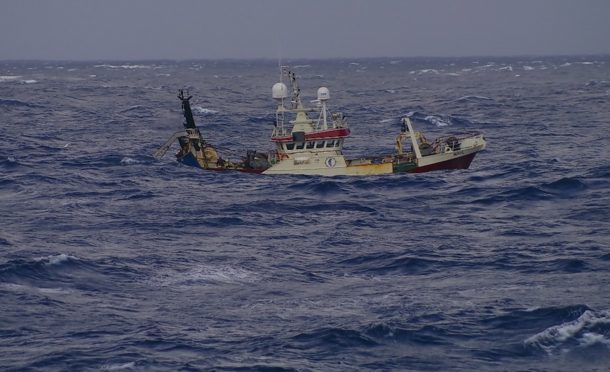Trawlermen who failed to rescue their crewmate after he plunged into the freezing water will be “going through hell”, according to the chief executive of the Scottish Fishermen’s Federation (SFF).
The crew of the Banff-registered Beryl boat battled to save the life of senior worker Joshua Aryeetey after he plunged into the Atlantic off the coast of Shetland on February 10.
However, the 47-year-old, from Ghana, died after he spent nearly an hour in the icy waters.
SFF chief exec Bertie Armstrong has said that the only thing the crew failed on was getting him out of the water in time – and that lessons will undoubtedly be learned from the tragedy.
His comments came after the publication of a Marine Accident Investigation Branch (MAIB) report, which found that the workers put their own lives at risk as they desperately climbed down the side of the boat to rescue him.
“The skipper and the family will be in a corner of hell at the minute,” he said.
“But they didn’t fail to know what to do – they failed to get him out of the water in time for him not to die of hypothermia.”
A post-mortem examination found that Mr Aryeetey had died of “immersion in sea water”. There were no signs of him suffering an injury.
He had been standing on a net trying to fix a snag on the shooting doors to the rear of the Beryl when he fell at about 9am.
He was pronounced dead at Lerwick at about 11.50am.
The MAIB made recommendations that fishermen must be encouraged to challenge unsafe work practices.
Mr Armstrong added that the recommendations would be taken on-board by the SFF and that it would support the Beryl crew in every way possible.
“We will consider this very carefully over the next couple of days. We knew it was coming and we will follow up with our own recommendations – it’s an awful tragedy,” he said.
“We’re taking the whole thing deadly seriously and we have been trying to support the boat throughout, but they didn’t kill anyone by not knowing what to do.
“With hypothermia and cold shock, some people will survive better than others if you get them out of the water in time.
“We go to great lengths to prevent them going over the side in the first place, but there will be lessons to be learned.”
